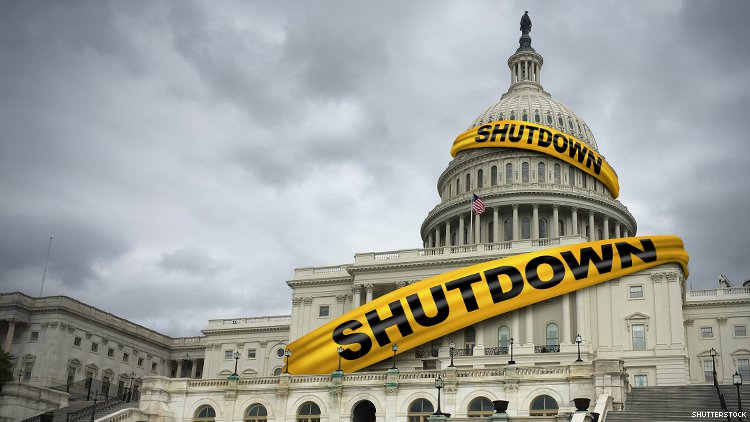Over 80% of American Women are One Paycheck Away from Homelessness: The Impact on Women of Missed Paychecks During the Government Shutdown

The longest government shutdown in US history, which lasted 35 days, came to a (temporary) close on Friday last week. During the shutdown, over 800,000 furloughed federal employees missed two consecutive paychecks. While two missed paychecks would put a strain on many American families, the average financial situation may be more tenuous than many of us realize. Here’s some important information:
- According to a 2017 report from CareerBuilder, 78% of full-time workers report living paycheck to paycheck, and women are more likely than men to live paycheck to paycheck (81% vs. 75%).
- A 2017 survey by GOBankingRates found that 57% of Americans have less than $1,000 saved, and again a gender disparity is shown where 62% of women reported under $1,000 in savings compared to $52% of men.
- Data drawn from OPM’s FedScope and analyzed by Government Executivedemonstrates that women make up two-thirds of federal employees making below $20,000 per year, but only one-third of those making over $180,000.
- And according to the US Census Bureau, of the nearly 12 million single parent families, over 80% are headed by a single mother.
So what does all this overwhelming data mean? Women are disproportionately affected when the government shuts down. As women are more likely than men to live with little savings and with a lower paycheck, they struggle, on average, more than men do to continue providing for their families when there’s an unexpected interruption in previously steady pay. Many full-time government workers receive enviable benefits like healthcare, frequent cost of living adjustments, and pensions (basically unheard of in most industries) but are still unable to save due to high base costs of living and unexpected expenses like high healthcare costs or car repair bills.
While the shutdown highlights the problems people who live paycheck to paycheck face, I was also reminded of a quote from everyone’s hero, Mr. Rogers: “When I was a boy and I would see scary things in the news, my mother would say to me, ‘Look for the helpers. You will always find people who are helping.’” And just as Mr. Rogers promised, dozens of local and national businesses responded quickly, offering free and discounted groceries, household products, and even museum admissions to furloughed government employees and their families. While we have a long way to go in addressing the systemic inequalities that lead to many women living from paycheck to paycheck, it’s a relief to know that in the meantime, we can rely on our communities in times of need.
